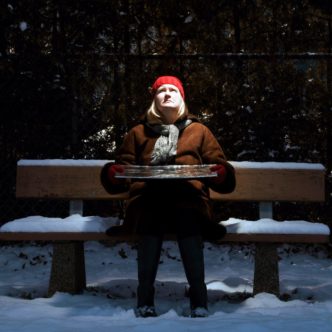Seasonal affective disorder (SAD)
What is SAD?
Seasonal affective disorder – or SAD – can leave you feeling in a low mood, exhausted and finding it difficult to live your normal life.
Seasonal affective disorder (SAD) is a type of depression that comes and goes in a seasonal pattern.
SAD is sometimes known as “winter depression” because the symptoms are usually more apparent and more severe during the winter. However, some people with SAD may have symptoms during the summer and feel better during the winter.
What causes SAD?
The exact cause of SAD is not fully understood yet, but it’s often linked to reduced exposure to sunlight during the shorter autumn and winter days. The main theory is that a lack of sunlight might stop a part of the brain called the hypothalamus working properly.
How is sleep affected?
REM sleep usually works to calm our brains down when we have been worrying about unmet emotional needs. But too much REM sleep in response to worrying can exhaust our brains, causing us to wake up feeling low in mood.
What has this got to do with melatonin and SAD? Well, melatonin is produced when it gets dark, so shorter days and longer nights lead to more melatonin, which increases the amount of time spent some people spend in REM sleep.
In particular, people with SAD have been found to have higher levels of melatonin than usual. It makes sense that this would lead to people having more REM sleep than is healthy, would then wake up feeling less rested and motivated to get going in the mornings.
Vitamin D and SAD
Curious about how Vitamin D might affect SAD? Here’s the technical answer from Ezra Hewing, our Head of Education:
Vitamin D activates the amino acid ‘tryptophan’. We need tryptophan to make serotonin, and in turn we need serotonin to switch off REM sleep.
This is because too much REM sleep exhausts the brain, leaving us low in mood when we wake up. So, Vitamin D can help to regulate levels of tryptophan and serotonin, helping us to get better sleep.
While Vitamin D supplements can have physical health benefits for some, it’s not a recommended treatment for those who experience seasonal affective disorder (SAD), as per the NHS website.
If you have (or suspect you have) SAD, do get in touch with your GP for suitable treatment options.
Fraser’s story
Fraser Muir, a Supported Accommodation Senior Practitioner and Trainer at Suffolk Mind, has been living with the condition since his 20s, when he realised he felt lower in mood when he experienced less sunlight during the day.
Here, Fraser tells of his experiences with SAD and explores some of the techniques he uses to get through the tough winter months.
“In the summertime I cycle, I swim in the sea, eat fantastically healthily, am open to participate and have strong relationships but then this six-week period comes and I’m a completely different person.
“Since my 20s I started feeling much worse in the winter, my mood was low, and I just felt dreadful.
“My diet became horrendous – I was overeating, spectacularly overeating, and that would come along quite quickly. A family bag of oven chips could go in one sitting.
“I was also finding it very hard to cope with everyday things. My mood would get erratic, I would get quite quick-tempered. It affected my work; I didn’t trust myself that I wouldn’t drop the ball.
“And it was getting worse and worse.
“Eventually, someone said maybe this is to do with the weather, the lack of light.
“I soon identified that it started early Autumn and ended in the winter, and almost as quickly as it started, it finished.
“It just stopped when it got sunnier and suddenly I didn’t need that bag of chips.”
Fraser’s tips to relieve the symptoms
I started reading up on SAD was and how it affects you. And so, I learned to adapt my behaviours. Simply just knowing a bit more about it was a relief, managing the symptoms was also a relief.
- Set a routine but be easy on yourself
I tried to keep to a routine but made sure to say to myself ‘this doesn’t last forever – if you feel like this now, you probably won’t in six-weeks’ time. So, don’t put pressure on yourself - Try a light box
I use a light box, a body clock regulator, all year round. I set it for an hour and it naturally decreases the light in the room, helping me to relax. And then in the morning, it lights up and helps to pick me up. If I have a particularly difficult time, I can hit the instant switch and get this simmering light that really lifts my mood. It’s amazing the effect light can have.I also took the decision to move to England, where I could see more sunlight, as up in the northeast of Scotland from October to March, I wasn’t seeing much sunlight. Also, just getting outside, even on grey days can help. There may not be much sunshine, but exercise is great for my mental health and it encourages me to meet up with other people too. - Be prepared
Recognising how you are feeling and preparing is important. For example, making sure I have a spare bulb for my light box. I learnt the hard way about 5 years ago when the bulb went – and it was quite a panic. If you do have an understanding of how it affects you, it is also important share it with people who are going to be affected – your family, colleagues, because the impact is not just on yourself. Also, like many things, someone close to you may be able to support you.Explaining the situation to your employer is useful too. When I joined Suffolk Mind, part of my role was shift work. I was able to say to them ‘this is who I am and this is how I function’. They adapted my working hours to give me day shifts and evening shifts, and that has really made a difference. For me, it was important to have an element of acceptance – I can do some things but not everything, and it doesn’t last for long.
Other tips for managing SAD
- Small lifestyle changes, including getting as much natural sunlight as possible, exercising regularly and managing your stress levels
- Talking therapies like counselling can be beneficial for some people living with SAD
When to see a GP
You should consider seeing the GP if you think you might have SAD and you’re struggling to cope.
The GP can carry out an assessment to check your mental health. They may ask about your mood, lifestyle, eating habits and sleeping patterns, plus any seasonal changes in thoughts and behaviour.
For more support this season, take a look at our article on how to help your mental health through the winter months.












